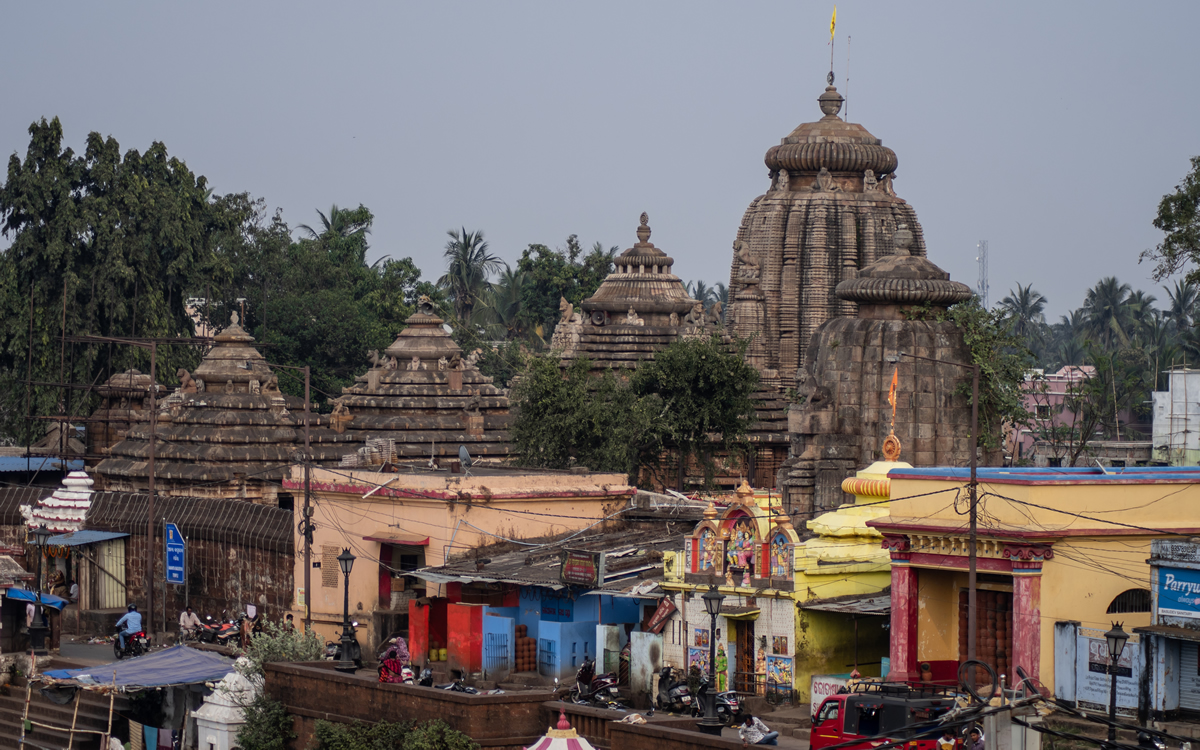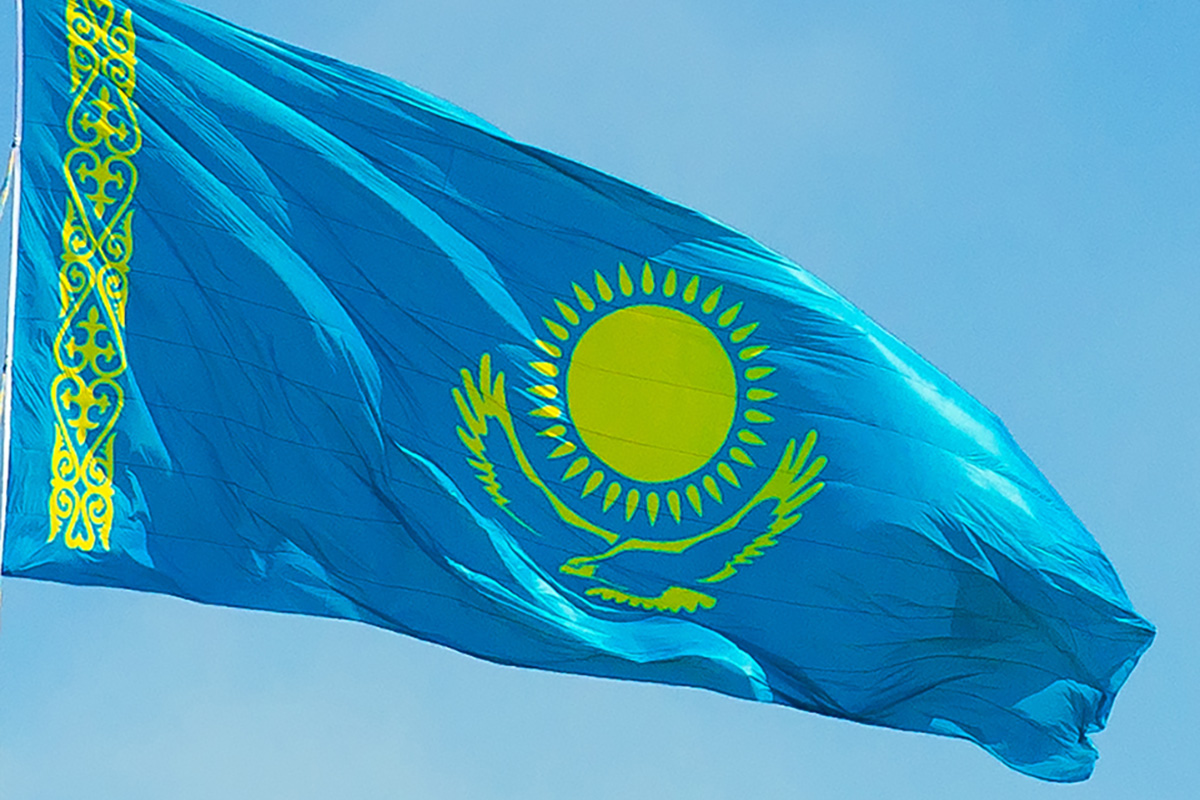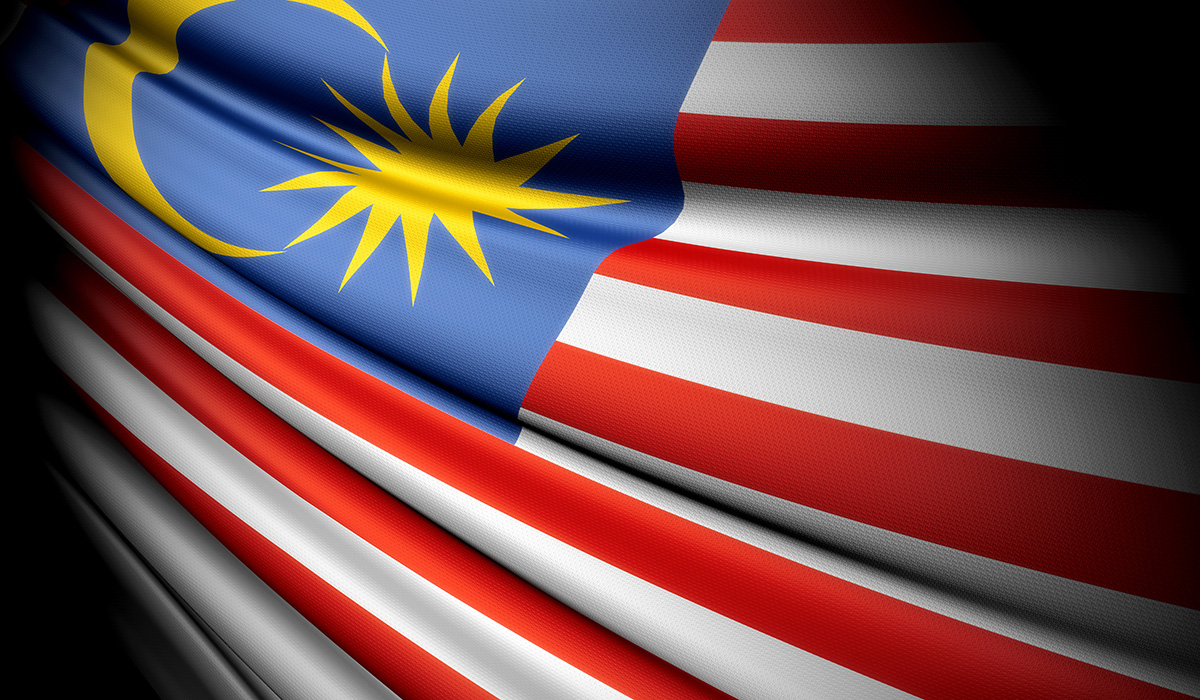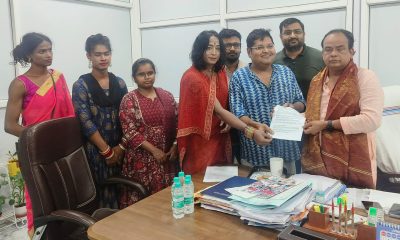Asia
India’s Odisha state launches program to empower transgender people
Upwards of 300 trans people have received jobs through Sweekruti

Despite being celebrated as iconic characters in ancient texts; dancing at a wedding for someone else; clapping and dancing while blessing a newborn baby at any home; transgender Indians are still ostracized and not able to get a job, get married or live a decent life.
Such was the consequence of 200 years of British colonial suppression in India, but things are changing for trans people in India. Several states began to introduce measures to help the trans community after the Indian Supreme Court‘s 2014 ruling that recognized a trans person as a “third gender,” and the passage of the Transgender Person (Protection of Rights) Act, 2019 in the Indian Parliament. Odisha, a state in eastern India, is working to make trans people part of mainstream society through its Sweekruti “acceptance” program.
The program provides critical health care, scholarships, counseling, legal aid, a certificate and skill training. According to a recent report, about 300 trans people have received jobs through Sweekruti.
“It will help create an ecosystem of equal opportunities, social justice, protection of transgender rights and full participation in society. It is opening various avenues of employment and self-employment for the community,” said Anushree Dash, a social reformer and human rights activist who founded the website ADiBha She Vision. “(The) focus is mostly on skill development and low paying jobs instead of higher education and high paying (so-called respectable) jobs. There is no trans inclusion in social sector and government sector jobs. The government’s research and scheme need to be applauded, but it needs more and more public participation. I believe there is a scope for strengthening the existing implementation machinery.”
The 2011 Census notes there are 20,322 trans people in Odisha, but 14.5 percent of respondents who participated in an online survey the state’s Social Security and Empowerment of Persons with Disabilities Department conducted in 2017 reported no income and were living in poverty.
The Odisha government in 2020 tried to improve the social and economic conditions of the trans community by introducing a monthly pension program for elderly and differently-abled trans people, but the Sweekruti program has been hailed as a successful initiative because it directly provides low-paying jobs to trans people and helps trans youth gain acceptance.
“First of all, I want to appreciate our chief minister, Naveen Patnaik, because he designed this project to empower the transgender community. This scheme mainstreams the transgender community by providing skills and jobs. So, this is a very good initiative,” said Meera Parida, a trans woman who is a State Advisor for Urban and Housing Development under the MUKTA (Mukhyamantri Karma Tatpara Abhiyan Yojana) program. “On many areas under the scheme, the work is already underway. Although it is not sufficient that it can provide everything, it is a good project for any transgender woman or man thinking about startups or wanting to get skills so they can improve their life.”
While talking with the Washington Blade, Parida said the trans community started to feel respect after the 2014 Supreme Court ruling and the passage of the 2019 law. She said it is more about dignity.
“People and government have started to talk about us and started to respect and include us in different government schemes,” said Parida. “It recognizes our presence.”
The Odisha High Court in May 2022 ordered the state government to release the family pension of a dead government employee to a trans person who was dependent on a pensioner. The Odisha government amended the pension rules nine months later. According to the new rule, a single trans child of a government employee or pensioner who died on or after Jan. 10, 2020, will be treated as an unmarried daughter for the family pension.
“Sweekruti is a good initiative, and works well in Odisha, but sometimes it is not as efficient as it should be. So, the government should fix the issue,” said Ashisha Behera, a trans activist who works with the Center for Advocacy and Research. “The initiative requires identification which is important, and it’s happening also, but sometimes the beneficiary belongs to a rural background, and many of them do not have idea about Sweekruti scheme, so government should spread awareness about it.”
While talking with the Blade, Biswa Bhusan Pattanayak, assistant director of the Bhubaneswar office of SAATHII, an LGBTQ and intersex rights group, said that one of the key components of the Sweekruti program is to facilitate access to social protection, livelihood and mainstream measures. This has been instrumental in addressing the livelihood needs of some trans people. Pattanayak, however, said mainstreaming initiatives need much larger efforts, in terms of expanding the scale and reach of livelihood initiatives.
Pattanayak added the government also simultaneously needs to address the root causes, such as discrimination and exclusion, that lead to trans and gender non-conforming children dropping out of educational institutions and being deprived of mainstream employment.
“The formulation of schemes is not enough. We need to see the issues around transgender persons from a development perspective,” said Pattanayak. “The development approach to the transgender community needs to converge initiatives and stakeholders from all sectors. We need to stop seeing transgender persons as just beneficiaries of governmental largesse; rather; recognize them as equal stakeholders in development actions.”
Ankush Kumar is a freelance reporter who has covered many stories for Washington and Los Angeles Blades from Iran, India and Singapore. He recently reported for the Daily Beast. He can be reached at [email protected]. He is on Twitter at @mohitkopinion.

Kazakh President Kassym-Jomart Tokayev on Tuesday signed a bill that will ban so-called LGBTQ propaganda in the country.
Members of Kazakhstan’s lower house of parliament last month unanimously approved the measure that would ban “‘LGBT propaganda’ online or in the media” with “fines for violators and up to 10 days in jail for repeat offenders.” The Kazakh Senate on Dec. 18 approved the bill.
Kazakhstan is a predominantly Muslim former Soviet republic in Central Asia that borders Russia, Turkmenistan, Uzbekistan, Kyrgyzstan, and China. Russia, Georgia, and Hungary are among the other countries with anti-LGBTQ propaganda laws.
India
Few transgender people benefit from India’s low-income housing program
Pradhan Mantri Awas Yojana launched in 2015

The Indian government on Dec. 15 informed parliament that only one transgender person in Jammu and Kashmir has been recorded as a beneficiary under the Pradhan Mantri Awas Yojana since the housing program was launched a decade ago.
PMAY is a federal government program aimed at expanding access to affordable housing for low- and middle-income households, including through credit-linked subsidies. The parliamentary disclosure indicates that trans beneficiaries have been virtually absent from the program’s records in the union territory, despite official guidelines listing trans people as a priority category.
In a written reply to a question in the upper house of parliament, known as the Rajya Sabha, the Housing and Urban Affairs Ministry said Jammu and Kashmir recorded zero trans beneficiaries under the program in each financial year from 2020–2021 through 2025–2026, with the cumulative total since inception remaining at one.
The Indian government launched the program on June 25, 2015, and the Housing and Urban Affairs Ministry implemented it.
The parliamentary reply came in response to a question on whether trans people are being included under the housing scheme and what steps have been taken to address barriers to access. The ministry said both PMAY and its successor, PMAY 2.0, are demand-driven programs, with responsibility for identifying and selecting beneficiaries resting with state and regional governments.
The ministry said the program lists trans people as a priority group, alongside widows, single women, people with disabilities, senior citizens, and other socially disadvantaged categories. It added that actual implementation depends on housing proposals and beneficiary lists submitted by state and regional governments.
According to figures the Indian government cited, a total of 809 trans beneficiaries have been recorded under PMAY and its successor, PMAY 2.0, since the programs were launched, with the vast majority concentrated in a small number of states. The southern state of Tamil Nadu accounts for 222 beneficiaries, followed by Andhra Pradesh with 186, and Odisha with 101. By contrast, several other states and federally administered regions, including Jammu and Kashmir, have reported either negligible or no coverage. India is administratively divided into 28 states and eight federally governed territories.
According to India’s 2011 national Census, Jammu and Kashmir recorded 4,137 trans residents. The same census counted 487,803 trans people nationwide, providing the most recent official population baseline for the community in India.
The ministry also said it has not conducted a specific survey to assess barriers faced by trans communities in accessing the scheme’s benefits. Instead, it said lessons from earlier implementation phases informed the design of the second phase of the program, launched on Sept. 1, 2024, which aims to support an additional 10 million urban beneficiaries over the next five years.
The parliamentary reply reveals an even more severe gap in Ladakh, India’s northernmost federally governed territory bordering China and Pakistan-administered areas and considered strategically critical to national security.
Official records show that Ladakh has not reported a single trans beneficiary under the housing scheme, either in recent years or cumulatively since the program began, with zero coverage recorded across all financial years listed in the Annexure. By comparison, Ladakh’s trans population stands at six, according to a written submission made to the High Court of Jammu and Kashmir in 2024.
Despite trans people being listed as a priority group in the scheme’s guidelines, the federal government said that as of November 2025 it had sanctioned more than 12.2 million homes nationwide under both versions of the program, with over 9.6 million homes completed and delivered. At the same time, data from Jammu and Kashmir, Ladakh, and several other regions show little to no recorded housing uptake by trans beneficiaries.
Speaking with the Washington Blade, Meera Parida, a trans activist, former member of the National Council for Transgender Persons in India’s eastern zone, and a former state advisor under the housing and urban development department, said the 2011 Census does not reflect the full size of India’s trans population, noting that public recognition and self-identification were far more limited at the time. She pointed to later government data collection efforts, including the National Portal for Transgender Persons that the Social Justice and Empowerment Ministry launched in 2020, as evidence that official counts have expanded beyond what was captured in the last Census.
“I am surprised that around the country only over 800 people benefited from the scheme, because most of the transgender population is from socially backward classes,” said Parida. “So they do not have a house and no family. Five years have passed since the NALSA judgment and the Transgender Protection Act; even after all these, if only over 800 transgender persons got home, that is a sad situation.”
Parida said that Prime Minister Narendra Modi has publicly positioned trans people’s welfare as a priority, but argued that the issue requires greater attention at the administrative level. She said the prime minister’s office should issue clear directions to all relevant departments to ensure trans people receive housing support and that implementation moves more quickly.
“There is still widespread discrimination and stigma against the community. Many transgender people are afraid to speak openly, which is why this issue continues to persist,” Parida said. “If stigma and discrimination are not addressed seriously, the marginalized community will remain invisible and reluctant to come forward. In that situation, the government will also be limited in what it can do. State governments should work with activists and community organizations to build accurate data. The government has decided to resume the Census in 2026, but the enumerators who go door to door must be sensitized to engage respectfully with the transgender community. The government should also improve awareness of housing schemes, because many people simply do not know they exist. A single-window system is needed.”
Malaysia
Malaysian police raids spark renewed concern among LGBTQ activists
202 people arrested at men-only venues in Kuala Lumpur on Nov. 28

In the weeks since a Nov. 28 police raid on men-only venues in Kuala Lumpur, queer activists in Malaysia say they have stepped up efforts to coordinate legal assistance for people detained under state Shariah laws.
Justice for Sisters, Pelangi, and other groups have been providing legal referrals, court monitoring, and emergency support following the arrests, as advocates warn that enforcement targeting LGBTQ communities has intensified.
In Malaysia, a Muslim-majority but multi-ethnic and multi-faith country, consensual same-sex sexual conduct is criminalized under both civil and Islamic law. The federal penal code bans “carnal intercourse against the order of nature,” a provision that applies nationwide, while state-level Shariah laws governing Muslims prohibit same-sex relations and gender nonconformity, including cross-dressing. Together, the dual-track legal system allows authorities to pursue LGBTQ people under parallel civil and religious statutes.
According to Justice for Sisters, 202 people — including venue owners, staff, and customers — were arrested and detained overnight. The organization in a statement said detainees were repeatedly denied access to legal counsel and communication with family members, and that their identities and images were exposed publicly — actions it said led to humiliation and, in some cases, job losses.
According to testimonies collected by Justice for Sisters and several other NGOs, detainees reported multiple procedural violations during the legal process. In a document the group published, detainees said they were not informed of the charges against them, were denied access to legal counsel, and phone communication for hours, and, in the case of foreign nationals, were not given access to embassies or translators. The document also described interrogations that included intrusive questions about sexual practices and orientation, as well as detention conditions in which detainees were repeatedly ordered to sit, stand, and recline without explanation and transported in overcrowded vehicles, with 30 to 40 people placed in trucks designed for far fewer passengers.
Detainees also reported being subjected to degrading treatment while in custody.
Accounts said detainees were denied access to toilets for extended periods and instructed to urinate into bottles, which were later thrown at them. Some detainees said officers suggested using rubber bands to restrict urination. Detainees also said authorities kept them awake overnight and repeatedly ordered them to sit upright or monitor others to prevent them from sleeping.
“We call on the Malaysian Human Rights Commission (SUHAKAM) and the Ministry of Health (KKM) to immediately launch an independent and unbiased assessment and investigation into the actions of the agencies involved during the raid, detention, and subsequent procedures, after the court rejected the remand extension request on Nov. 29, 2025,” Justice for Sisters said in a statement. “This raid has had a serious impact on public health. Many individuals reported heightened mental distress, including suicidal thoughts and severe psychological stress, affecting their ability to carry out daily activities such as eating, working, sleeping, and accessing medical treatment. When safe-sex tools such as condoms or pre-exposure prophylaxis are used to imply criminal activity, it directly undermines progress in the country’s public health response.”
Justice for Sisters also said law enforcement officers must conduct investigations professionally and fairly, while upholding the presumption that detainees are innocent until proven guilty. The organization in a statement said police must carry out their duties in a manner that preserves public trust and confidence in the justice system.
Rights groups say enforcement actions against LGBTQ gatherings in Malaysia have not been limited to the capital.
In June 2025, police in the northeastern state of Kelantan raided a private rented property described by authorities as a “gay party,” arresting 20 men, according to state police statements.
According to Reuters, Malaysian law enforcement authorities said they would review their procedures following the November raid. The report cited Kuala Lumpur Police Chief Fadil Marsus as saying that 171 Malaysian nationals were released from custody after authorities found no evidence to prosecute them.
The Washington Blade reached out to the Royal Malaysia Police for comment, but did not receive an immediate response.
“We do not want a situation where raids and arrests are carried out but, in the end, the evidence is inadmissible,” Marsus said, according to Reuters.
As of Dec. 1, all but one of the 37 foreign nationals detained in the raid had been released, with the remaining person held on an immigration-related matter, according to Reuters. Authorities have not publicly disclosed whether they remain in custody.
-

 U.S. Supreme Court4 days ago
U.S. Supreme Court4 days agoSupreme Court hears arguments in two critical cases on trans sports bans
-

 Opinions5 days ago
Opinions5 days agoTeam Rayceen’s hiatus is officially over
-

 U.S. Military/Pentagon5 days ago
U.S. Military/Pentagon5 days agoHRC holds retirement ceremony for ousted transgender servicemembers
-

 U.S. Supreme Court5 days ago
U.S. Supreme Court5 days agoAs Supreme Court weighs trans sports bans, advocate and former athlete speaks out




















